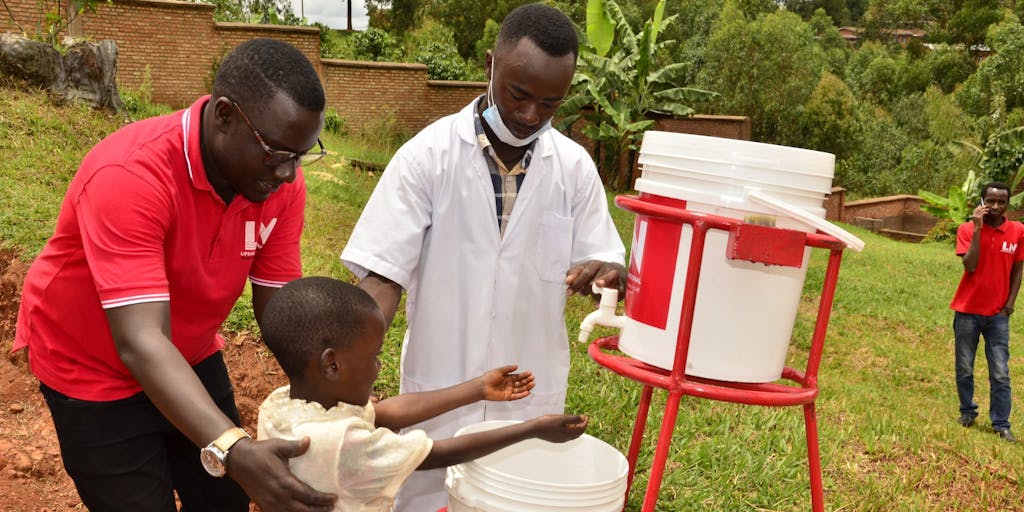Most of us are thinking of how much the coronavirus pandemic is subtracting from our lives (eating out, parties, church, family gatherings). But right now, Food for the Hungry (FH) is multiplying impact — via a COVID-19 partnership.
Your donations to FH’s COVID-19 efforts provided emergency cash to our partner organization LifeNet International. In four African countries–Burundi, Uganda, the Democratic Republic of Congo, and Malawi–LifeNet is helping 220 front-line clinics to prevent COVID-19’s spread. Clinic workers are also learning how to treat patients safely with the disease.
Strengthening Health Care through a COVID-19 Partnership
FH frequently forms partnerships with health organizations in the communities where we work. While FH has expertise in health, it’s in malnutrition and disease prevention, particularly for children ages 5 and under. When you give to FH health initiatives, you’re helping us train mothers worldwide on how to keep their children healthier.
It would seem like FH would also need to build clinics to care for sick children. But rather than reinventing the wheel, FH will make treatment agreements with local clinics or hospitals. FH can also strengthen existing health facilities by constructing water systems or latrines.
FH’s COVID-19 partnership helped LifeNet distribute nearly 200 hand washing stations so far to clinics. That way both staff and clients alike can stay clean. Telling people to wash their hands helps, but demonstrating it as part of the system helps even more. LifeNet is also working to procure supplies of personal protection equipment (PPE) for all clinics.
Training for staff is a primary concern as well. Due to lockdowns, or threats of future lockdowns, staff training must be virtual. Some health centers have robust internet connections so videos can be streamed over laptops, cell phones, or tablets. Others don’t, so LifeNet will deliver videos and training materials via flash drive. And LifeNet will help pay for the extra data charges the clinic workers need to view training materials.

COVID-19 Partnership and the Hunger Pandemic
Tandem humanitarian response — response bolstered by partnerships — is more important than ever. According to a new report by the World Food Program, COVID-19 threatens to create a “hunger pandemic” on top of the coronavirus pandemic. The number of people who face food crises worldwide could double, to over a quarter of a billion people.
FH has been fighting hunger crises for nearly 50 years. Via improved agricultural practices, seed and tool distributions, and emergency food rations, FH has kept families eating well and healthier. FH’s leadership in combating malnutrition will help cut the number of cases in clinics, like those supported by LifeNet, for non-COVID-19 diseases.
Long term, COVID-19 may cause instability in many ways. Food may become scarce, to the point that some fragile states will see food riots. Sickness or death of family members means the inability to raise crops that would feed families for a whole year. With schools closed, children lose opportunities to learn that can help them break the chains of poverty.
So while we look forward to re-opened restaurants, churches, and schools, many in the world could face destitution. FH and others like LifeNet are taking a long-term approach measured in years, not weeks or months, to coping with COVID-19. It will take partners like you who donate, and partners like LifeNet who are on the front lines, to help FH reach our goal of ending all forms of human poverty worldwide.
You may be interested in these posts:
Bruz’s Story: Guinea Pigs Jumpstart Change


